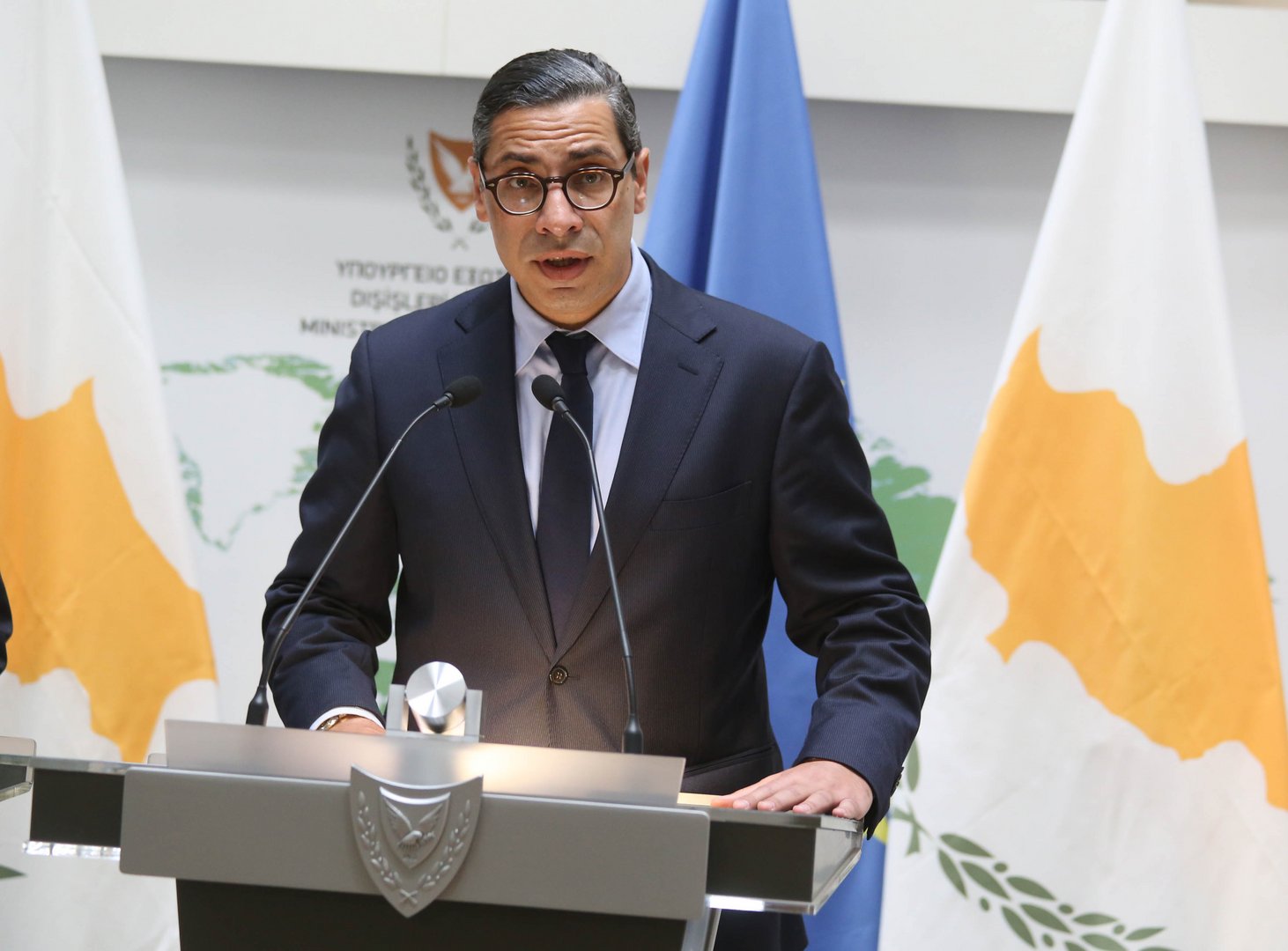Foreign Minister Constantinos Kombos has accused Turkey of persistently obstructing the Republic of Cyprus’ humanitarian initiative “Amalthea,” describing a coordinated campaign of diplomatic and asymmetric efforts to derail the aid corridor.
In an interview with Phileleftheros published on Sunday, Kombos said Ankara has been “quite inventive” in placing obstacles in the path of Cyprus’ plans, including exerting diplomatic pressure on third countries and attempting to cast doubt on the initiative’s feasibility.
Despite these challenges, he hailed Amalthea as a diplomatic and operational success, underscoring its importance amid a volatile regional climate. “The fact that the Republic of Cyprus managed to design, implement, and continue this effort in this particularly sensitive field and during this time has its own importance and sends a specific message,” he said.
Kombos framed the initiative as a demonstration of Cyprus’ credibility and constructive role in the region, especially as the humanitarian corridor to Gaza has received praise from the international community, including the Palestinian Authority and key Arab states.
Responding to domestic criticism of the government’s handling of the Middle East crisis, Kombos said the global reception to Amalthea serves as a firm response.
He also issued a stark warning against complacency in Cyprus, linking Turkey’s obstructive actions to the wider geopolitical threat posed by the ongoing division of the island. “Let’s not have the delusion of normality. We are facing an existential threat,” he warned, adding, “It would be irresponsible to ignore reality.”
As an example, he cited the case of five Greek Cypriots who are currently being illegally detained in the Turkish-occupied north, condemning the move and reinforcing the broader security concerns.
Turning to the Cyprus problem, Kombos reiterated the government’s commitment to relaunching negotiations, stressing that Nicosia remains firmly aligned with the UN Security Council framework.
“We have made continuous efforts to generate momentum for a return to the negotiating table, but these efforts are met with the barren reaction of the other side,” he said.
“The only framework is that of the UN Security Council. There can be nothing else for us,” Kombos added, noting that this position is also supported by the European Union and the wider international community.






Click here to change your cookie preferences